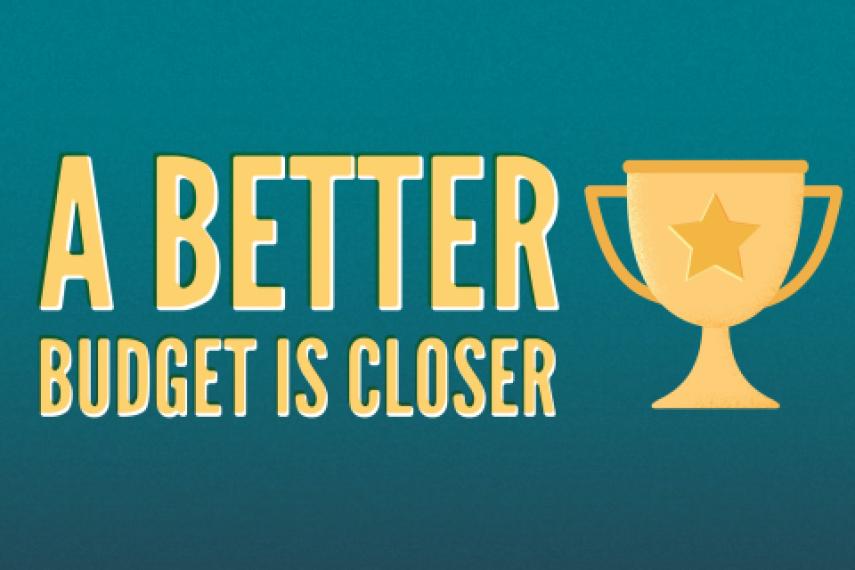
Let's be honest: most people don't wake up excited to create a budget. I can feel like a chore. But what if budgeting wasn't just about restriction? What if instead it was about giving yourself permission to prioritize what matters most? (And what if you had free online and mobile tools that make budgeting super simple?)
Whether your priority is a dream vacation, paying off debt, buying a home or something else, a budget puts you in control. And when you create an effective budget, managing your money becomes less stressful and more rewarding.
Everyone needs a budget, no matter how much you make or what stage of life you're in. Just remember — it's not about less. It's about more of what matters most to you.
Take Control
A budget gives you control over your hard-earned money. It’s the first step toward smarter spending and greater peace of mind. Without a budget, it's easy to lose track and overspend. A budget keeps you grounded by showing:
- Your monthly income
- How much you can afford to spend
- What you need to save to achieve your financial goals
A solid budget acts as your financial roadmap, helping you build savings and make smarter spending choices.
Budgeting Made Simple
Ready to take the first step? The easiest way to get started is with Money Tracker in online and mobile banking. Or, to create your budget manually, follow these steps:
- Calculate your income: Calculate your after-tax take-home pay.
- Track your expenses: List everything you spend money on, down to the last dollar.
- Set spending limits: Allocate a portion of your income to each budget category.
- Monitor your progress: Use our online and mobile banking tools to track spending effortlessly.
- Review and refine: Check in at the end of the month to compare your income and expenses. Make adjustments as needed.
If you need some help just getting started, ask us about a Financial Trek Check! We’ll help you create a personalized money plan with specific action items and educational resources. Then we’ll follow up to track your progress. Visit your local Horizon branch or call us at 800.852.5316 to get started today.
Key Considerations
- Your spending habits: Take a close look at how you’re spending. Knowing exactly where your money goes can be an eye-opener and the first step toward smarter choices.
- Cut the fluff: Identify areas where you can trim non-essential spending. Maybe it’s cooking at home a couple times a week instead of eating out or skipping that extra streaming service. Small changes can add up to big savings.
- Check in monthlyYour budget isn’t set in stone. Review it regularly to see where you’re over or under-spending. Adjust as needed to keep your finances on track.
- Use tools to simplifyGone are the days of tedious spreadsheets. Modern online tools make budgeting easy! Take advantage of the budgeting features in our mobile and online banking to stay organized and stress-free.
Start Budgeting Today
No matter how you choose to budget, the most important thing is to start. There’s no one-size-fits-all approach to budgeting, but the more you do it the more comfortable and easy it will become.
If you're not sure where to begin, try Money Tracker. It's free for Horizon members and has all the tools you need to budget successfully. Before you know it, you'll be making smart spending and saving decisions and be on your way to achieving your financial goals!
